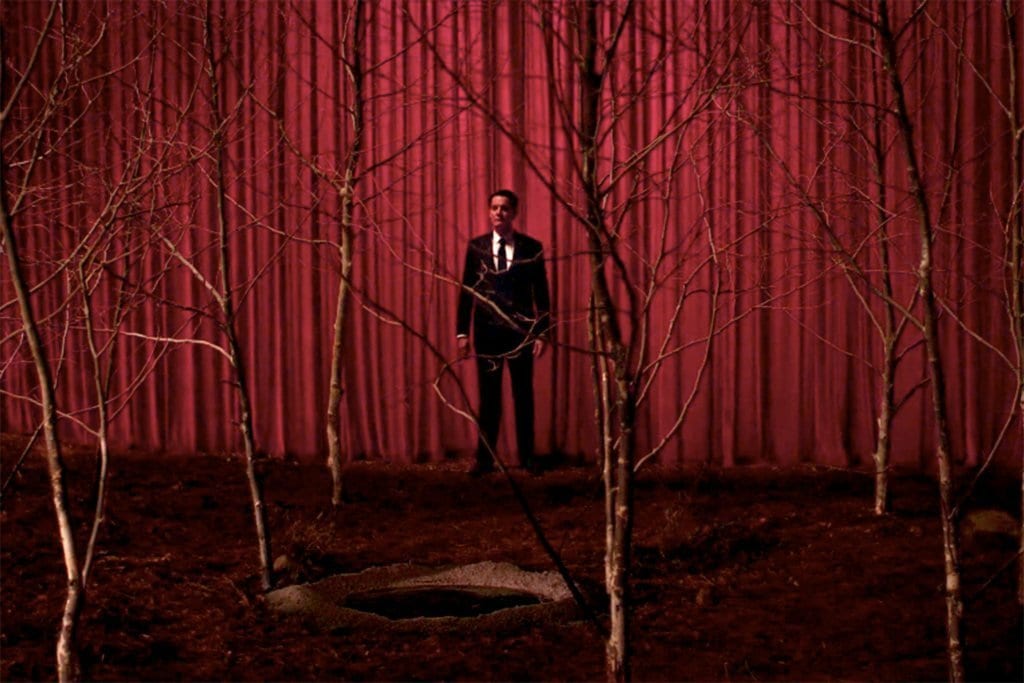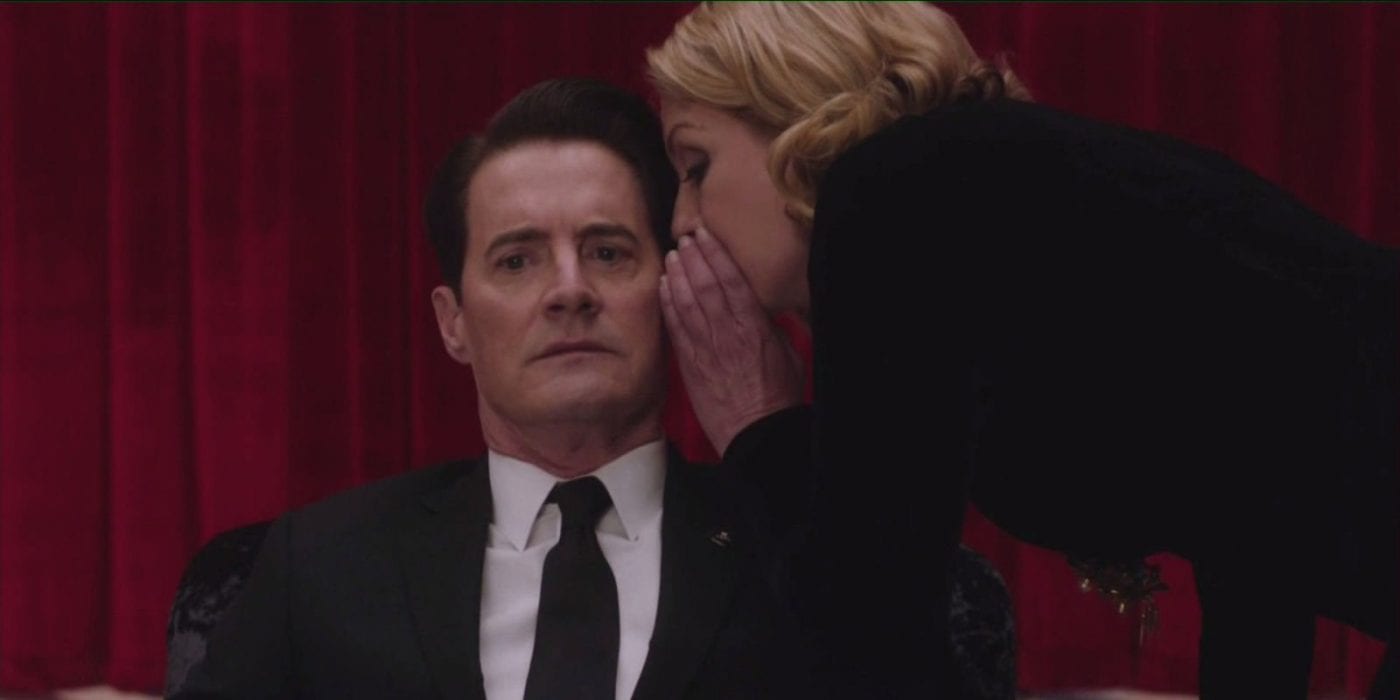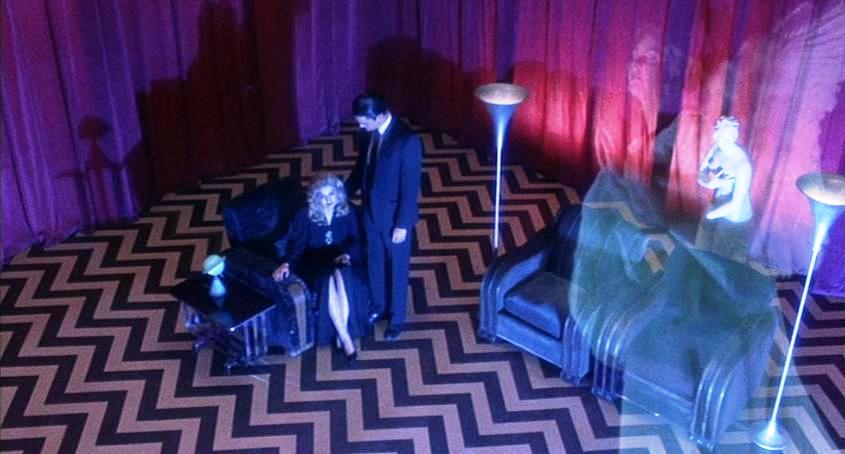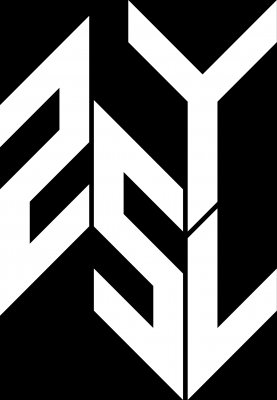The consensus between many members of our staff (and beyond) is that there is an element of circular narration happening in The Return. They have looked at this element in many different ways – John’s recent article Cooper’s Time Loop Isn’t Just His, where he suggests that, much like the infinity symbol, Cooper’s loop is connected to Laura’s loop, and that there are possibly other characters who exist in loops as well, doomed to be there, until they change their actions (like Audrey). Lindsay as well discusses this element in The Continuing Education of Dale Cooper.
The beautiful thing about The Return, is that while these ideas are sometimes harmonious, sometimes the antithesis of one another, and occasionally overlapping, the nature of the beast allows for any of them to be equally probably descriptions of what is actually happening. True to Lynchian form, and in his own words your interpretation – “what you know is valid”.
I have many theories, and almost all of them include the time loop in some way or another, but I think that other elements of The Return lend this particular read a more layered note. Like John’s theory, I am about to suggest that Dale has never left the Lodge at all: Dale Cooper is in Hell – a repeating, personalized torture that goes on forever and ever for all time, made to look real to him, and as a result, to us.
 Most readers will at least have heard of Dante’s Inferno, and many will be familiar with the concept of Hell existing in varying degrees proportionate to the crime committed. Seven, one of the “Big Numbers” of The Return, correlates closely with Dale throughout. He works for “Lucky Seven Insurance”, he gets a series of 3 sevens every time he pulls on the lotto. Even Janey-E mentions ‘seventh heaven’ – an insidious, subconscious reminder of his true location? These are but a few examples of where the number crops up. In Hell, the Seventh Circle is Violence.
Most readers will at least have heard of Dante’s Inferno, and many will be familiar with the concept of Hell existing in varying degrees proportionate to the crime committed. Seven, one of the “Big Numbers” of The Return, correlates closely with Dale throughout. He works for “Lucky Seven Insurance”, he gets a series of 3 sevens every time he pulls on the lotto. Even Janey-E mentions ‘seventh heaven’ – an insidious, subconscious reminder of his true location? These are but a few examples of where the number crops up. In Hell, the Seventh Circle is Violence.
Not every ‘sin’ that would put someone in the Seventh Circle applies to Dale, but there are some interesting correlations, and I have determined two distinctive ways of looking at it.
From the moment that Dale’s doppelganger leaves the lodge in the Season 2 finale, Dale is in Hell. In this scenario, that does not require him to be dead. Just in Hell. What worse hell is there for someone like Dale than to endure failure, over and over again, without the ability to retain the knowledge that would allow him to alter his actions to the end of a different outcome?
But what sin has he committed to land him here?
 The Seventh Circle requires violence, but that violence is varied. Certainly Dale has committed violence against others (under the accommodation of the law) and so I’m not sure that element fits him precisely, at least not in this reading. There is also violence against others property, against oneself, and against nature. There is one final selection of people who end up in this circle, and they are those who commit profligacy, which has two meanings: “reckless extravagance or wastefulness in the use of resources and/or licentious or dissolute behavior.”
The Seventh Circle requires violence, but that violence is varied. Certainly Dale has committed violence against others (under the accommodation of the law) and so I’m not sure that element fits him precisely, at least not in this reading. There is also violence against others property, against oneself, and against nature. There is one final selection of people who end up in this circle, and they are those who commit profligacy, which has two meanings: “reckless extravagance or wastefulness in the use of resources and/or licentious or dissolute behavior.”
It is possible that Dale fits into this final category, if not intentionally. He’s certainly wasted some of his potential as a person – 25 years of his life gone down the drain – but he also wastes the assistance he had in the form of those around him who would help him. He goes it alone, determines that it is ‘his mission’. Is this wasteful? From a certain point of view. And Dale hasn’t been necessarily lily-white in his personal behavior. He is a bit promiscuous (more so than a bit if you are going to consider his sexual history in My Life My Tapes) in his behavior with women, but I wouldn’t say that his moral character is totally irredeemable by any means. Simply…flexible.
Profligacy is punished by a never ending chase by dogs, and, when finally caught, are reassembled and the chase begins again. That element certainly rings true – throughout The Return Dale is pursued by assassins, is racing against his doppelgänger, and being driven about by outside forces. Maybe my arguments are thin on this, but the relationship between the concepts of the Seventh Circle and Dale’s journey in The Return are too strong to ignore.
There is a stronger reading yet to be covered: violence against oneself. While this is not limited to suicide, it does include suicide. Certainly one manner of looking at Dale’s entry and subsequent entrapment in the Lodge is a level of self violence. Simply by entering the place, he could have ‘killed himself’, in that he kills the life he could have lived, and kills the person that he was. Interestingly enough, for those who commit self-violence, the punishment is to become a tree. The middle ring of the Seventh Circle is a forest of stunted, gnarled, leafless trees, the souls of those people who commit self-violence. The forest is inhabited by harpies – part bird, part woman, with terrible screams. After all, while Dale doesn’t necessarily turn into a tree, the Sycamores are all around him – in street signs, and in literal groves. Laura’s doppelganger, her Lodge self and Carrie Page all have the most bone chilling scream anyone has ever made.
These elements are being played with fast and loose, but one can’t help but see the correlations. Yet another reading, which suggests that Dale has escaped from the Lodge, has him actually committing suicide in the moment when he puts the fork in the outlet (whether intentional or not) – his hell begins there. Everything after that point is no longer really happening and the circular loop starts turning for Dale Cooper.
I used to think that Dale being stuck in the Black Lodge was a sort of purgatory, but after The Return, I can only see Hell. The only person who has potentially reached purgatory (and beyond?) is Laura Palmer. Dante’s Purgatory is a Mountain which has to be climbed. Metaphoric for overcoming one’s sins to attain entry to Paradise. Each stage of the climb is one of the Seven Deadly Sins. The final exit of purgatory is to run through a wall of flame. There is more to all of this of course, but if Laura’s journey in Fire Walk With Me is anything akin to this, I see it here. Her journey may not necessarily be one to overcome sin, but certainly, as my co-workers have attributed, to overcome her own trauma, to assert her authority over the outcome of her life and even that of her death and, in doing so, finally achieve the salvation she so desperately desired.
What a grievous sin it would be against another to remove that person from their own journey, so close to the gates of paradise. We don’t have the phrase ‘good intentions pave the pathway to hell’ for nothing. Perhaps this is Dale’s greatest sin – to believe that he can offer Laura Palmer salvation when he himself has none.






As others have already stated or suggested, in “Cooper’s loop” a good man is doomed to endlessly repeat a enormously difficult task, with no fundamental change in the disappointing outcome. A la Sisyphus, who is condemned to roll a boulder endlessly up a mountain, only to have it roll back down to its originating point, requiring Sisyphus to endlessly repeat his laborious effort. On the one hand, a symbol of futility (as many have noted regarding Dale’s crusading effort) and, thus, perhaps a metaphorical description of the human condition. On the other hand, French philosopher and novelist Albert Camus famously concludes his Le Myth de Sisyphe this way: “The struggle itself . . . is enough to fill a man’s heart. One must imagine Sisyphus happy.” Camus acknowledges an essentially absurd or meaningless universe, often viewed as hostile, within which our options seem severely limited. But we find our freedom in how we react to this condition and by cultivating a psychic or soul space for ourselves that absurdity cannot control or defeat, something that Sisyphus may reflect upon during his repeated descents back down the mountain to re-shoulder his boulder. His reflections during that descent lead him to rebel, to refuse to let the absurdity of his existence define his essential identity or value. He may repeatedly fail in his efforts but his soul’s response to that failure, not the failure itself, defines him and denies absurdity its victory. . . . That said I would not imagine Odessa Coop as “happy.” But there sure was a bounce in the step of post-Dougie Las Vegas Coop, underscored by “I AM the FBI!” and an overarching existential acceptance in the Coop we subsequently witnessed (as embodied agent and as disembodied Briggsian floating head superimposed on events) in Dale’s return to Twin Peaks.
i also think the violence to one self is also because Dale actually hates himself. i think he thinks he’s like an awful bad person who continuously needs to do “good” things so he can be “good”, personally. like i think he has that kind of black and white thinking and i think that he thinks he’s WRONG somehow, like his existence is WRONG, like he’s some kind of dark stain on existence or the planet, personally. and i think that kinda thinking started with his mother dying and perhaps how he felt he couldn’t save her and only further progressed as he got older, personally, with a lot of the women in his life dying. and thats also personally why i think he puts himself in harms way to “help” people because he thinks he has to continuously do “good” to be a “good” and “right” person and he secretly hates himself so he doesn’t care whether he lives or dies when he does such things, thats my take too on the violence against ones self. its also why he never does anything for HIMSELF and continuously only does things for others, which is also harming yourself in a way.
This puts a pretty Christian spin on it. I’m not convinced that this would be David Lynch’s intention, but as always it is left to one’s own interpretation.
I’m just making connections – I don’t agree necessarily either, but then I’m not sure anyone anticipated Laura’s angels! If the connection is there, I’ll extrapolate. Hope you enjoyed either way.
I think this is interesting. Many people have said Cooper is in some kind of “limbo” or “purgatory” without any real discussion about what those terms mean and so it is good that a real discussion of the definitions is made here. I think though, like the commenter above alludes to, DL is much more likely to transpose philosophies more in keeping with his beliefs, i.e. ones that would come from an Eastern Hindu/Buddhist tradition. This would make it more in line with ideas behind reincarnation. I read recently about metempsychosis and this was an interesting idea to apply to Cooper – the idea that his “soul” is tied to a wheel of existence that takes on different forms/identities, that cannot be completed until some form of enlightenment is achieved.
HELL-o-oooo!
I was just pondering this the last couple of days and decided to do some reading to see what others think. You left out a crucial clue. That Windom Earle may have actually killed Cooper before the original series even started. Twin Peaks could very well be the first circle of hell and Cooper was dead all along.